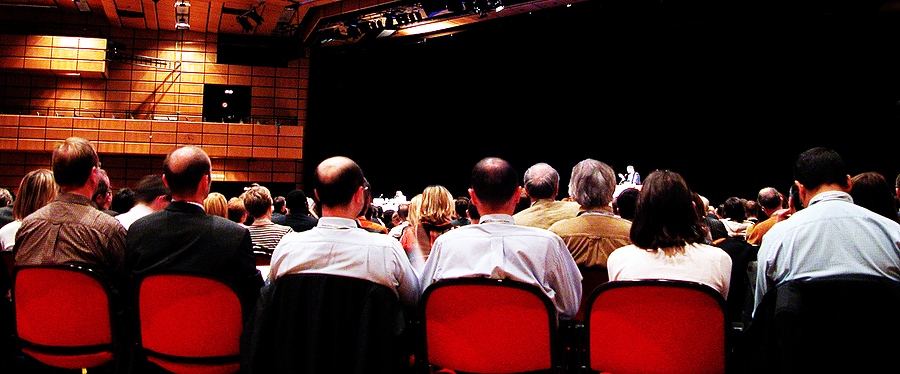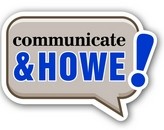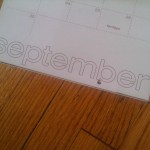I love tweeting at events! I love sending tweet after tweet after tweet to share the goodness that I am experiencing. Doing so also helps me to internalize the ideas being shared and now with Storify, I can use the tweets to capture an overview of an event and even include resources shared and follow up blog posts. My experience at the Nonprofit Technology Conference in April is typical of what I am talking about.

Introducing “event tweeting”
This behaviour on Twitter is usually referred to as “live tweeting.” When I used this term, I get quizzical looks and get asked, “Isn’t all tweeting live?” While I could dive into the debate about scheduling tweets, I usually just accept the comment that the term “live tweeting” doesn’t really work very well at describing what it is.
I recommend that from now on, we refer to this type of activity as “event tweeting.”
What is and is not “event tweeting”
Before delving into how to event tweet, I’d like to clear up some misconceptions.
A tweet like “I am listening to James Howe speak about the fundamentals of social media” is not an event tweet. That kind of a tweet doesn’t offer much, if any, more value to your followers than what you ate for lunch.
That tweet might help to set the stage for the tweets that follow but too often it is the only tweet someone sends from an event. It begs questions like, “What did Howe say?” or “What do you think about what Howe said?” Start answering those questions and you become an event tweeter.
Sometimes I’ll see a single tweet that answers one of those questions. While it offers value, it’s not enough to be considered to be live tweeting an event. There needs to be a lot of twitter activity over a sustained period of time about the event.
The best event tweeters capture enough of the meat of an event such as a presentation that it’s almost like you are there even if you’re just following by Twitter.
Have enough people event tweeting with a common hashtag and your experience is as close to being there as possible without physically attending. Many more people benefit from Social Media Breakfast: Waterloo Region than attend a session by following #smbWR for example.
In the best cases, the event tweeting can inspire what is referred to as a “back channel” that includes comments, questions, links to resources mentioned and other related conversation occurs. The back channel often means participants receive additional value from the experience.
How to event tweet
I have received compliments for my event tweeting. I often reply that it’s a talent. That may be an exaggeration but it’s not something that comes naturally to everyone-and not everyone wants to interact with information by event tweeting.
If you are interesting in event tweeting events live as they happen, you give it a try. Keep at it! You’ll become better with practice. Or you may decide it’s not for you.
Here’s how to event tweet:
- Send a tweet to establish the context. Ex. What event are you at? Who is speaking?
- Use a hashtag. If the event has an official hashtag, be sure to use it. If it doesn’t have one, create your own hashtag. Using a hashtag helps people at the event to connect to each other even if they don’t follow each other and allows people outside the event to follow what is happening.
- Be sure to give the speaker credit. You want to avoid appearing to take credit for what the speaker is saying. Give their full name at least once and share their Twitter handle if they have one and you know it.
- Once you’ve established the context and given credit, you can move to a more condensed version such as this tweet: “Howe - There’s a difference between having an account and using it. #pcto2012″
- Listen to the speaker and capture bite-sized chunks. Tweet. Repeat. Tweet. Repeat. Etc.
- You can be quicker tweeting by preparing your tweet for a chunk of content. You can do that by putting in the speaker’s last name and the hashtag until you hear a piece of content worth sharing, example “Howe - #pcto2012″. Just add the goodness and tweet.
- Sometimes content on a slide helps you to capture a chunk of content but the best event tweeters don’t rely on slides but instead capture a quote by listening.
- Use your multi-tasking skills. Listen as you type so that you can start another tweet after hitting send.
I’ve written this post because on June 12 and 13, I am attending My Charity Connects by Canada Helps. My fingers will be flying and I will be event tweeting. If you’d like to see me and others in action, follow #mcc12.
Post Script:
Here are examples of my event tweeting at My Charity Connects that I created with Storify
- a session on youth engagement with social media
- a session on the essentials of building a new website
Control the noise
Some people don’t like the noise from event tweeting. Depending on how you access Twitter, you may be able to filter it out. I know I can if desired with Tweetdeck. You could also temporarily take someone off of a list or even stop following them. Or you can simply skim past them knowing that the volume is short term and a regular volume will resume shortly.
But I seldom get any complaints over event tweeting. My experience is that people who follow me are interested in the events that I attend and value the content that I am sharing. So before you take any action to avoid event tweets, take a moment to see if they interest you.
What do you think about event tweeting?
Do you have any tips? Comments?






